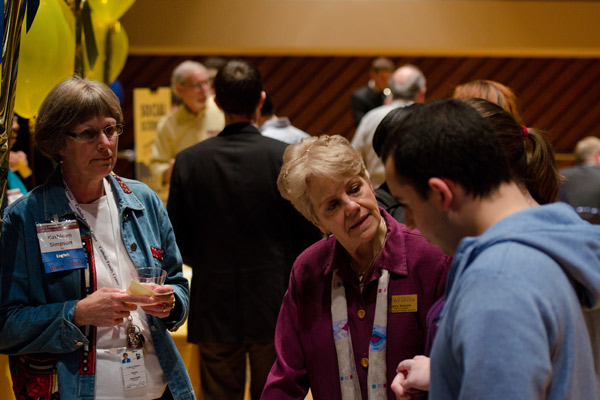One of the main reasons I decided to attend the University of Rochester was its flexible curriculum that gives everyone a chance to explore different interests. Its policy also allows students to wait to declare their major at the end of their sophomore year. When I was applying for colleges, I had no idea what I wanted to do. I knew I hated math, and I would never go into engineering or (god forbid) pre-med, but other than that, I didn’t know what I wanted to do. I was always interested in film and writing, but I never had a chance to take a film class in high school due to all those AP classes and whatnot.
While completing some of the college applications, it was kind of disheartening for me to have to put down a major I knew nothing about just to complete the application. And it was scary. Does everyone, except me, already know what they want to do in college? It made me feel like I hadn’t accomplished anything in the last four years in high school.
However, applying to the University of Rochester was a different experience. Rochester asked me to list three different options as my “potential” interests for majors, and I could even put down undecided for all three if I wanted to do. Even when talking with an admissions counselor, he stressed the idea that I did not have to declare my major until the end of my sophomore year, after I had taken various classes and learned where my interests truly lie.
That was when I knew I wanted to attend the University of Rochester, a school that finally understood that it’s impossible to know exactly what you want to do fresh out of high school, and gives students time to explore their academic interests and expand their horizons.
So throughout my freshman and sophomore year, I took various classes that sounded interesting and eventually discovered my passion for writing in art history. (If you’re interested, you can read more about how I found my true love in the world of academics.)
After I realized that I wanted to be an art history major, it was time to declare. The steps to declare aren’t complicated at all; around March, I received an email from the school with directions on how to declare my major online or in person. Most majors can be declared online, and all I had to do was fill out a list of courses that I would take in the future to fulfill my major requirements. But I decided to first talk to my academic advisor about my future plans to get an idea of what courses I needed to take to fulfill the requirements. Some majors have a specific path that everyone must follow, but for a major like art history, there are so many courses to choose from and I wanted some guidance.

After I filled out my major declaration form online and received a “yes” from the department, it was time to celebrate! The University of Rochester makes declaring your major a celebration, a wonderful achievement that you have accomplished in your college career, and it is celebrated with a huge party. On the day of the party, there are food and prizes that you get just for declaring your major. You also get your picture taken to be used in the department, and you also get to make connections with other people in the same major track.
Now, it is important to conclude this post by saying that I was extremely lucky to find a major that I wanted to do for sure, because not everyone finds something they’re really interested in by the end of their sophomore year. And it is also true that half of the students change their majors at least once, and some people change their majors at least three times before they graduate. Rochester encourages this kind of exploration.
Just because you declared your major at the end of your sophomore year doesn’t mean that it’s the major you want to pursue for the remaining two years of your college career. Things change, and that’s okay. What’s really important is that you are always on the lookout for new opportunities and new ways to make your academic career the best one that it can be.

